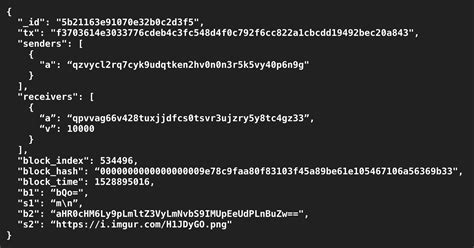Title: When is OP_RETURN cheaper than OP_FALSE OP_IF?
Introduction
In the Bitcoin world, transactions can be complex and involve various cryptographic operations. One such operation is the use of opcodes in P2TR (P2RPB) inputs, which can embed arbitrary data in a manner that is both safe and efficient. However, when it comes to certain types of transactions being more expensive than others, there are specific guidelines to follow. In this article, we’ll explore why OP_RETURN might be cheaper than OP_FALSE OP_IF for certain use cases.
What is OP_RETURN?
OP_RETURN is a type of P2TR input that allows the creation of “return” addresses without revealing information about the content of the transaction. This makes it useful for scenarios where sensitive information needs to be kept secret, such as sending funds to someone you don’t know personally.
What is OP_FALSE OP_IF?
OP_FALSE OP_IF is a different opcode that allows conditional execution of a script under certain conditions. It is often used in combination with P2TR inputs and can create complex decision flows within a script.
Why OP_RETURN might be cheaper than OP_FALSE OP_IF
There are several factors at play in terms of the cost of OP_RETURN transactions:
- Security Cost

: Using OP_RETURN creates a security cost because it requires the recipient to verify that they are the intended owner of the funds before depositing them into their wallet. This can be a complex process and may require additional verification steps.
- Transaction Size Limits: The maximum transaction size limit for P2TR inputs is 1000 bytes, meaning that OP_RETURN transactions will always be smaller than OP_FALSE OP_IF transactions.
- Script Execution Overload: Although a script executed in OP_FALSE OP_IF may be complex and time-consuming to execute, it is still within the bounds of the transaction size limit.
In contrast, OP_RETURN transactions are only 256 bytes long, which means they are significantly smaller than OP_FALSE OP_IF transactions. This reduced size makes OP_RETURN more efficient and potentially cheaper to process for the sender.
Conclusion
Although there may be specific use cases where OP_FALSE OP_IF is preferable to OP_RETURN, in general it is often cheaper due to smaller transaction size and security overhead. However, it is important to consider the trade-offs and choose the opcode that best suits your specific needs.
As we continue to explore the intricacies of Bitcoin transactions, this article highlights an important consideration for developers, users, and administrators working with cryptocurrency transactions. By understanding the differences between OP_RETURN and OP_FALSE OP_IF, we can optimize our use cases and improve the overall performance and security of our digital assets.
Leave a Reply